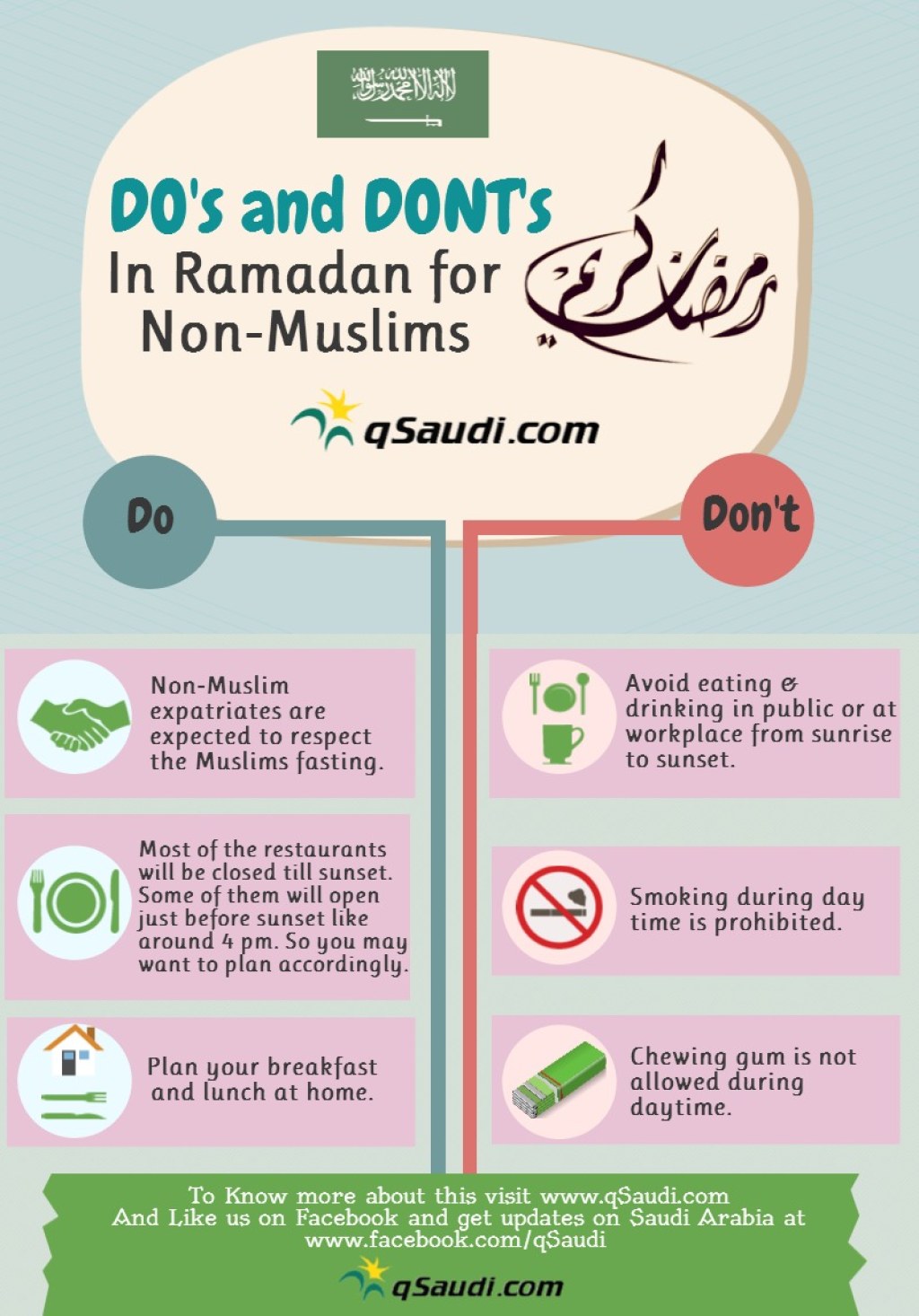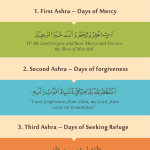Unlock The Secrets Of Ramadan Dos And Don’ts: Your Actionable Guide To A Blessed Month
Ramadan Dos and Donts: A Guide for a Fulfilling Month
Introduction
Assalamualaikum, Ramadhan enthusiast! As the holy month of Ramadan approaches, it is crucial for us to understand the dos and donts that govern this auspicious time. Ramadan is not just about fasting from dawn till dusk, but it is also a time for spiritual reflection, self-discipline, and acts of kindness. In this article, we will explore the essential dos and donts of Ramadan, providing you with a comprehensive guide to have a fulfilling and blessed month.
2 Picture Gallery: Unlock The Secrets Of Ramadan Dos And Don’ts: Your Actionable Guide To A Blessed Month


What is Ramadan?
Ramadan is the ninth month of the Islamic lunar calendar, during which Muslims around the world observe fasting from sunrise to sunset. It is a time of heightened devotion, increased prayer, and abstinence from worldly desires. Ramadan holds immense significance as it commemorates the first revelation of the Quran to Prophet Muhammad (peace be upon him).
The Dos of Ramadan

Image Source: studioarabiya.com
1. 🌙 Intention: Begin each day of fasting with a sincere intention to seek closeness to Allah and to purify your soul.
2. 🍽️ Suhoor: Consume a wholesome and nutritious pre-dawn meal, ensuring sustained energy throughout the day.
3. 🕌 Taraweeh Prayer: Engage in the special nightly prayer performed during Ramadan to earn additional spiritual rewards.
4. 📚 Quran Recitation: Dedicate time each day to recite and contemplate the verses of the Quran.
5. 💪 Self-Control: Practice self-discipline by refraining from any prohibited actions, such as gossiping, lying, and backbiting.
6. 🤝 Acts of Kindness: Engage in charitable acts, support the less fortunate, and be mindful of others’ needs.
7. 🤲 Sadaqah: Give generously in the form of sadaqah to support charitable causes and help those in need.
The Donts of Ramadan
1. ❌ Eating and Drinking: Abstain from eating, drinking, and smoking from the break of dawn until sunset.
2. ❌ Negative Speech: Avoid using foul language, engaging in arguments, or speaking ill of others.
3. ❌ Excessive Sleeping: Refrain from excessive napping during the day, as Ramadan is a time for increased devotion and productivity.
4. ❌ Wasting Time: Utilize your time wisely by engaging in acts of worship, seeking knowledge, and performing good deeds.
5. ❌ Indulgence in Worldly Desires: Exercise self-restraint and avoid engaging in activities that distract you from your spiritual journey.
6. ❌ Neglecting Prayers: Ensure regular performance of the obligatory prayers and strive to increase voluntary prayers during Ramadan.
Who Should Observe Ramadan?
Image Source: fbsbx.com
Every mentally and physically capable adult Muslim is required to observe fasting during Ramadan. It is an obligation upon all believers who have reached puberty and are in good health. However, certain exemptions exist for individuals who are ill, pregnant, breastfeeding, traveling, or menstruating.
When is Ramadan?
The precise beginning of Ramadan is determined by the sighting of the new moon. Islamic scholars and local moon sighting committees announce the start of the month. As the Islamic calendar follows the lunar cycle, Ramadan shifts approximately ten days earlier each year. Muslims worldwide eagerly await the sighting of the crescent moon, which marks the beginning of this blessed month.
Where is Ramadan Observed?

Image Source: qsaudi.com
Ramadan is observed by Muslims in every corner of the globe, from bustling cities to remote villages. It is a time when families and communities come together to strengthen their faith, bond with loved ones, and partake in acts of worship. Mosques become the focal point for worship, where individuals gather for congregational prayers and recitation of the Quran.
Why is Ramadan Important?
Ramadan holds profound significance for Muslims as it is a month of immense blessings and spiritual growth. It is an opportunity to cleanse the soul, seek forgiveness, and strengthen the bond with Allah. Fasting during Ramadan helps believers develop self-discipline, empathy for the less fortunate, and gratitude for the blessings in their lives. It is a time when Muslims strive to attain taqwa (God-consciousness) and deepen their connection with their Creator.
How to Make the Most of Ramadan
1. 📅 Plan Your Days: Create a schedule for Ramadan that includes time for prayer, Quran recitation, reflection, and acts of charity.
2. 🌙 Night Worship: Dedicate the last third of the night for tahajjud prayers, seeking forgiveness, and making heartfelt supplications.
3. 🍲 Share Meals: Arrange iftar gatherings with friends, family, and neighbors to foster unity and strengthen relationships.
4. 📖 Quran Memorization: Utilize Ramadan to memorize portions of the Quran that you can recite throughout the year.
5. 🏋️♀️ Physical Fitness: Engage in light physical activities and exercise to maintain good health during fasting.
Advantages and Disadvantages of Ramadan
Advantages:
1. ✨ Spiritual Purification: Ramadan offers a golden opportunity for individuals to purify their souls and seek spiritual growth.
2. 🌙 Increased Devotion: The atmosphere of Ramadan encourages Muslims to intensify their acts of worship and devotion to Allah.
3. 🌍 Empathy and Generosity: Fasting fosters empathy for the less fortunate and motivates individuals to engage in acts of charity.
4. 💪 Self-Discipline: Ramadan instills self-discipline by training individuals to control their desires and exercise restraint.
5. 🌸 Community Spirit: Ramadan brings communities together, strengthening the bond between individuals and fostering a sense of unity.
Disadvantages:
1. 🥴 Physical Fatigue: Extended periods of fasting can lead to fatigue, especially for those engaged in physically demanding tasks.
2. 🕒 Time Management: Balancing work, daily responsibilities, and acts of worship during Ramadan can be challenging.
3. 🌙 Late Nights: Taraweeh prayers and late-night meals can disrupt sleep patterns, leading to tiredness during the day.
4. 💧 Dehydration: The long hours of fasting without water intake can cause dehydration, particularly in hotter climates.
5. 🍽️ Overeating: Some individuals tend to overindulge in food during iftar and suhoor, leading to digestive discomfort.
Frequently Asked Questions (FAQs)
Q: Can I take medication while fasting?
A: Yes, you can take necessary medication while fasting. However, it is advisable to consult with a knowledgeable scholar or medical professional for specific guidance.
Q: Can I fast if I am menstruating?
A: No, menstruating women are exempt from fasting. However, they should make up for the missed fasts after Ramadan.
Q: Can I brush my teeth while fasting?
A: Yes, you can brush your teeth while fasting, but it is recommended to use a miswak (tooth-stick) or a toothbrush with minimal water to avoid swallowing water.
Q: Are pregnant or breastfeeding women required to fast?
A: Pregnant and breastfeeding women have the option to fast or postpone their fasts until a more suitable time when their health and the baby’s well-being are not compromised.
Q: Is it permissible to use perfumes or scented products during fasting?
A: Yes, it is permissible to use perfumes or scented products during fasting as long as they are not ingested.
Conclusion
As we conclude this guide to Ramadan dos and donts, we hope it has provided you with valuable insights on how to make the most of this blessed month. Remember, Ramadan is not only a time of physical fasting but also a period of deep spiritual reflection and self-improvement. By adhering to the dos and avoiding the donts, may you have a fulfilling Ramadan filled with blessings, forgiveness, and spiritual growth.
Final Remarks
Ramadan is a time of immense significance for Muslims worldwide. It is a month of reflection, devotion, and self-discipline. The dos and donts mentioned in this article serve as a guide to ensure a fulfilling and rewarding Ramadan experience. However, it is essential to consult with knowledgeable scholars or religious authorities for specific guidance pertaining to individual circumstances. May the blessings of Ramadan be showered upon you and may this holy month bring you closer to Allah.
This post topic: Ramadhan



